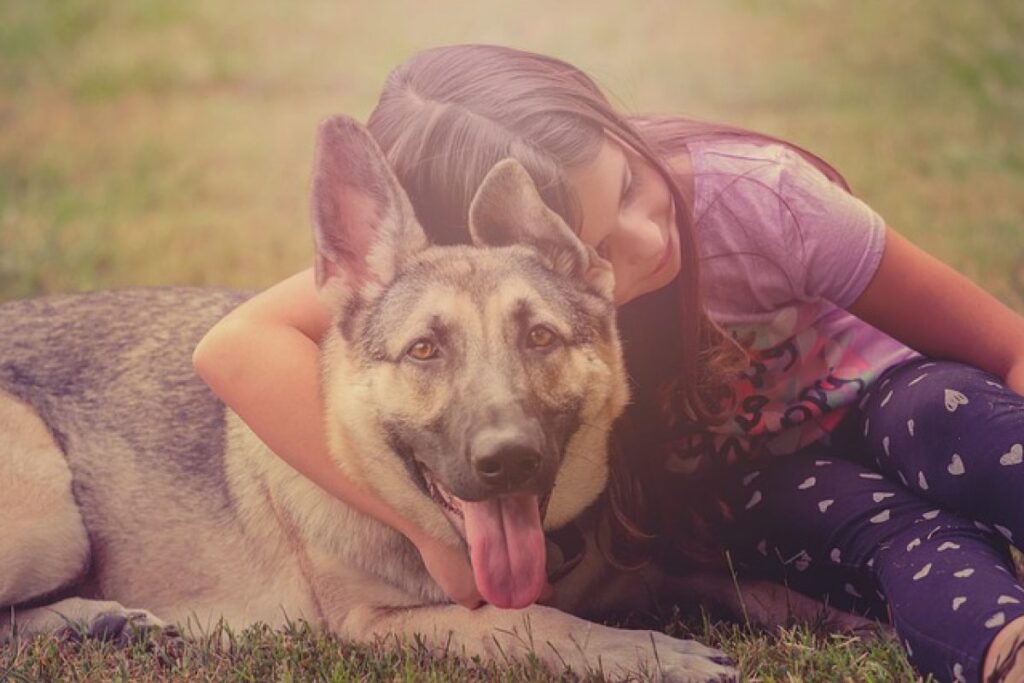The decision you are about to make needs very careful consideration, as choosing the right German Shepherd Dog is a huge responsibility and commitment – as indeed is taking care of any breed of dog, be it a puppy or a dog. Elderly:
SO TAKE YOUR TIME TO RESEARCH.
Key things to keep in mind
Lifestyle
Think about your lifestyle, as German Shepherds are social animals and don’t like to be left alone for long. The general rule is that the dog should not be left for more than four hours a day, although this will vary depending on the dog’s age.
Space
Think about your home and whether you can accommodate a large breed dog. Not only will he like to have his own space inside the house, but a German Shepherd is not suitable if he lives in a flat with no outside space where he can stretch his legs between walks and where will he go to the bathroom on that occasional day when he sits? Too indisposed to take him out for a walk?
If it’s on a floor, what floor is it on and does it have stairs or a lift? Older shepherds can have trouble with stairs.
Money
Aside from the initial cost of obtaining your German Shepherd, and essential equipment such as collars, leashes, bowls and bedding, the ongoing costs can soon add up, considering these dogs can live an average of twelve years.
Consider These Aspects after Choosing a German Shepherd
German shepherd and puppies Feeding
Research the costs of good quality dog food.
Make sure you have a minimum of third-party coverage for your dog, and explore the options offered to cover accidental and medical health problems. Check which franchises apply. Most insurers will allow you to pay by direct debit monthly at no additional cost.
Vet bills and costs
The insurance will not cover routine health care for your dog, such as annual vaccinations, spaying or dental cleaning.
If you haven’t taken out insurance, will you have funds to cover an emergency operation, which can cost hundreds and sometimes thousands of pounds? Does your vet offer a monthly payment health plan?
Kennels or pet daycare centers or shelters for dogs
Where will your dog go when you are on vacation? If he is lucky enough to go with you, this is not a big deal, but if he regularly goes out once a year to warmer climates, consider the costs of care.
Weather
German Shepherds are active animals and need a considerable amount of daily exercise, depending on their age. Your GSD will need training & some socialization as well with people and other animals.
The blitz of the media makes many people wary of them when they’re out in public, and while much of the press is exaggerated and inaccurate, it’s our responsibility as German Shepherd owners to allay these fears by making sure our dog is okay. Polite and obedient when away from home.
Cleaning
Despite regular grooming, your German Shepherd will shed, and it can sometimes feel like this happens 365 days a year. They also have a tendency to love water and mud, and are always careful not to shake themselves off until they’re home. If you are proud of your house, this is not the dog for you. And proper potty training also helps maintain cleanliness.
BUY OR REDEEM? REGARDLESS OF WHERE YOU GET YOUR GERMAN SHEPHERD, THERE ARE SOME VERY SIMPLE RULES YOU SHOULD FOLLOW:
- Never buy a dog from an advertisement where more than one breed is advertised, as it is very likely that the advertiser is breeding without scruples, for purely economic purposes.
- Never buy an ad where an individual is selling or relinquishing their dog due to a change in circumstances, unless you are sure it will allow multiple visits and will accept the dog back in the event of a problem. Unfortunately, the reality is that many people use this form of advertising to get rid of a “difficult” dog, with problems that are often of their own making.
- Never buy from a pet store, as they are “puppy farm ” outlets, again unscrupulous breeders whose only interest is money and not the welfare of the dogs
- Never buy a dog on impulse, for example from the man in the bar who has to sell his dog.
- Whichever path you take to purchase your German Shepherd puppy, there are a few simple guidelines you should follow:
- The breeder must allow you to see the mother with her litter of puppies. This is very important, and you should never buy a puppy from a place where you are not allowed to meet the mother, for whatever reason you are given. Seeing the mother and evaluating her temperament will give you an idea of what the puppies should be like in terms of temperament, size and characteristics.
- If the father is also owned by the same breeder, you should ask to meet him. This something which is not always possible, as stud dogs are not always owned by the same person or family. However, reputable breeders will be happy to show one or both parents.
- Ideally, the puppies should have been raised in the home of the person selling them, rather than in a kennel or stable, as otherwise they may not have had enough experience of everyday life or contact with people and home environment
- You should be able to handle and meet the entire litter instead of being shown just the puppy that may be destined for you. This allows you to assess your puppy compared to his siblings in terms of size, characteristics, and confidence. It is also a good test of the mother’s temperament, as she should be willing to allow visitors to handle her pups and not worry when she picks them up and plays with them.
- The breeder should also welcome repeat visits, although remember that too many can be a drawback.
- Ask the breeder for a copy of their sales contract. This will be provided to you by a reputable breeder, and should include details of the breeder’s responsibilities and your responsibilities towards the puppy. It should also include a list of any Kennel Club entries (restrictions) that have been placed on the puppy’s registry, and under what conditions they may be willing to remove them. Such annotations may include that the pup is not for breeding or for export.
- Take the time to talk to the breeder about vaccinations, microchipping, deworming, flea treatments, feeding, and exercise. The breeder should give you written advice on all of this, but it’s good to review it to make sure he’s fully clear on when and if the puppy needs his next vaccination.
- The breeder must also provide you with a pedigree detailing your puppy’s ancestry; it can be handwritten or printed by the breeder, or an official one from the Kennel Club.
- Breeders must also provide copies of additional dam and sire health certificates. German Shepherds are prone to a number of hereditary diseases and it is important that you are aware of these conditions so you know what questions to ask. Today, some dogs undergo DNA testing for certain diseases.
- Ask what age you can take the puppy home. The ideal age is eight weeks, but many breeders will allow you to take the puppy home from six weeks. A puppy should never leave his mother or his siblings before that age.
Conclusion:
It is always good to opt for a German Shepherd as long as you have the right time, space and adaptability to the breed.

